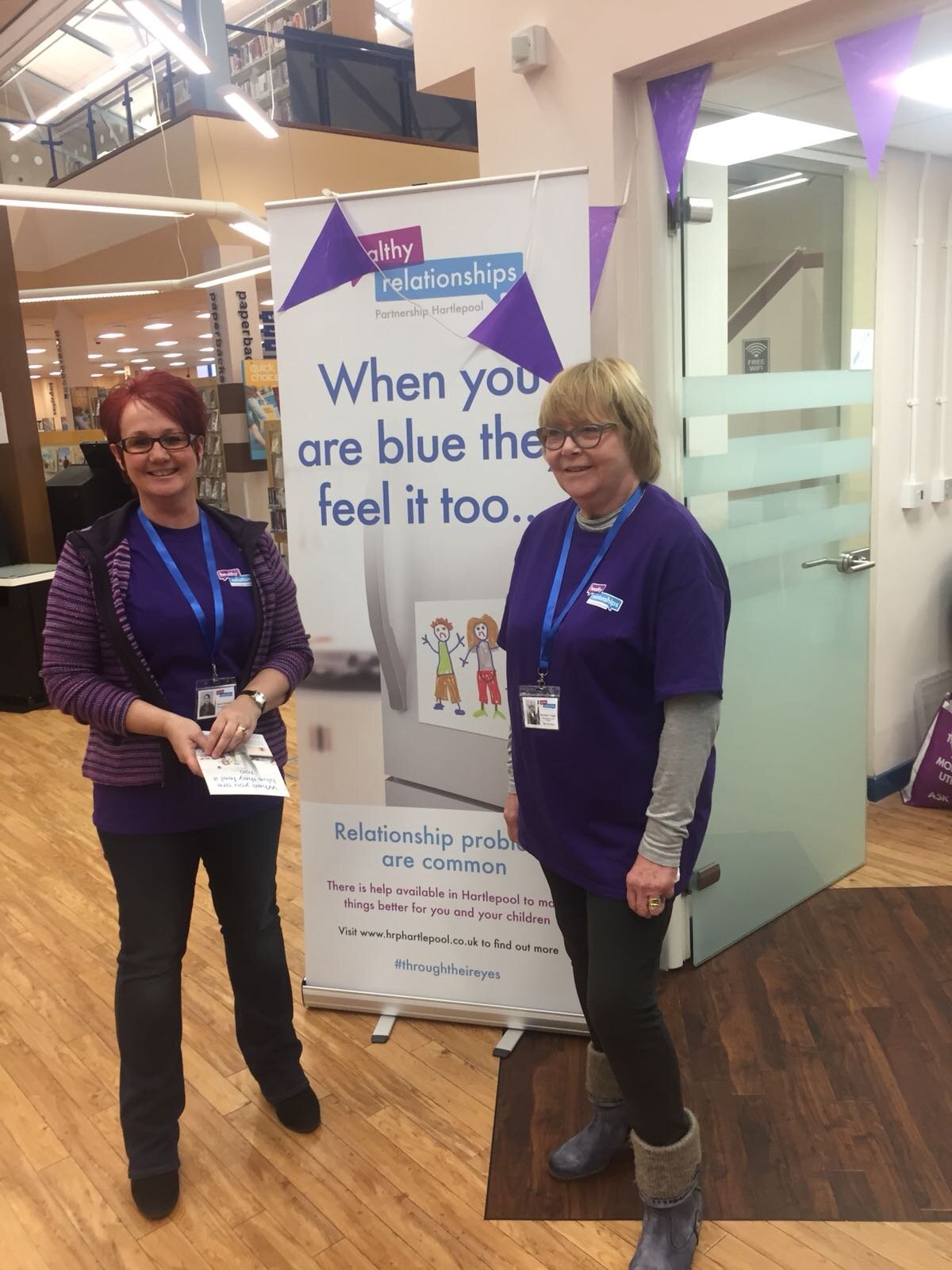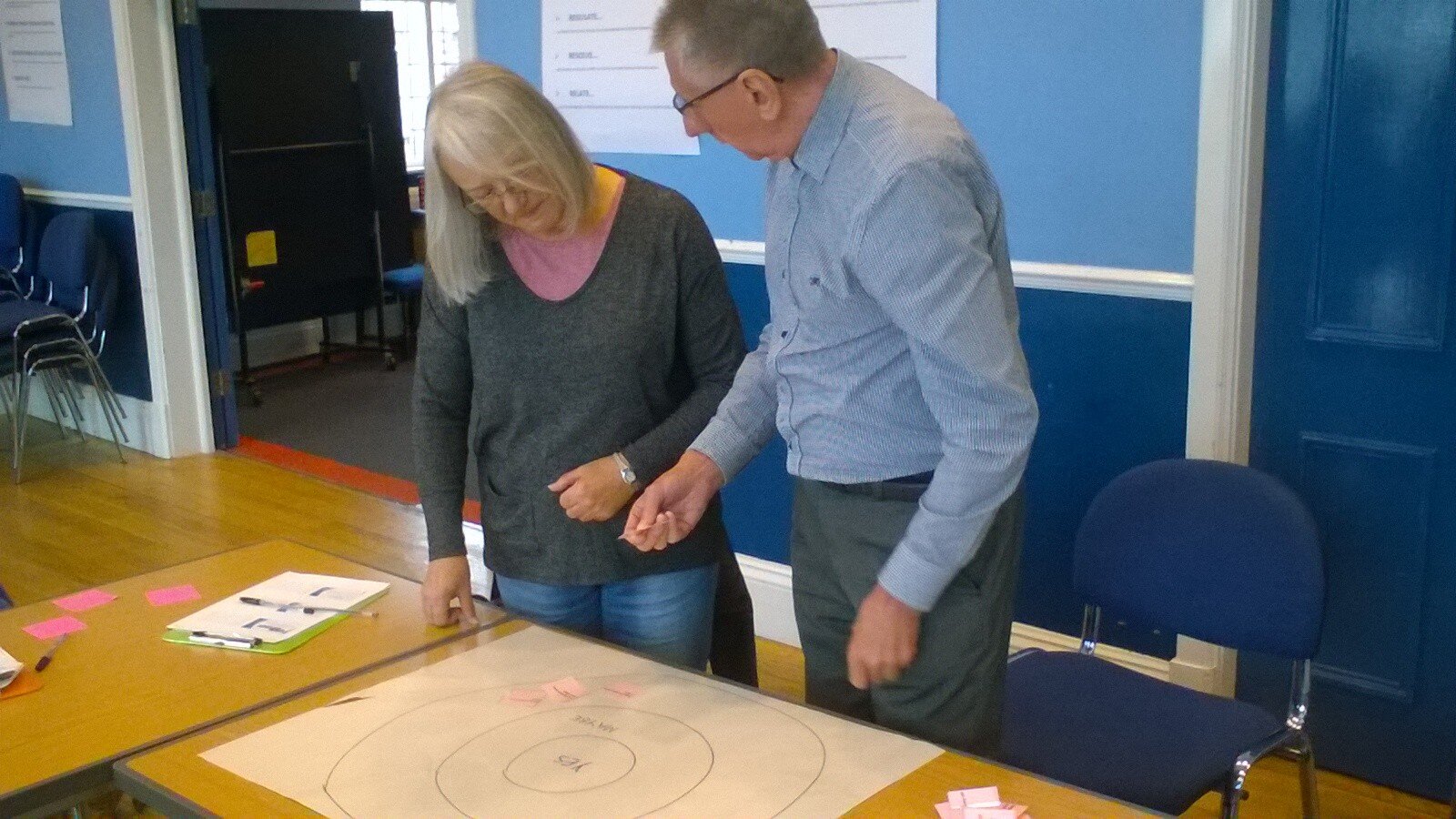Our journey to creating healthier relationships in Hartlepool
Jayne Moules from the Healthy Relationships Partnership shares how they have evolved their approach over five years and what they’ve learned along the way.
Community participative research
What is the Healthy Relationships Partnership?
Healthy Relationships Partnership (HRP) programme started in 2015 with the aspiration to make Hartlepool the place with the healthiest relationships in the country. We wanted to create healthy relationships between organisations, within teams and between practitioners and families. We believed that healthy family relationships would be best fostered and supported by a healthy system.
The problem we wanted to solve
The system wasn’t focusing enough on the quality of the relationship between the parents of a child. There is a lot of evidence that this has a huge impact on children’s welfare, well-being and their life chances. It’s also a critical determinant of how effectively parents can parent (Harold, Acquah, Sellers & Chowdry, 2017).
So, we were curious about why, if the evidence is so compelling, aren’t we responding to it? What are the system conditions that need to be in place in order to act early and intervene to strengthen parental relationships? The Early Action Neighbourhood Funding allowed for the creation of a project team to:
Act as 'system stewards', providing support to the organisations with the resources, position and power to make a difference to start to think, behave and deliver differently.
Deliver activities to demonstrate evidence-based practice locally.
At first we focused on ‘delivering’ something
In the first phase we introduced an evidence based relationship intervention called ‘Parents as Partners’ (PasP).
We thought we needed to have a tangible ‘thing’ we were delivering. We believed this would help us to win credibility and to be seen to be ‘bringing something to the party’. Especially in the early stages of the progamme, when ‘system change’ was a concept that was not well understood and difficult to translate into activity. We also thought it would help us to demonstrate to the funders and partners that the project had ‘beneficiaries’.
We thought lots of schools and other early help services would be interested in this. Wrong. Despite tireless promotional work, demand was low.
So we changed our approach
As our understanding of the system conditions matured we adopted a different approach.
We created demand for services by raising awareness with parents and community organisations and increasing the supply of accessible support.
To drive up demand for healthy parental relationships we developed community awareness raising campaigns. We used social marketing, social and broadcast media to increase the profile of HRP and of the issue.
This support was delivered either through self-help, training community volunteers or by equipping practitioners in community and universal services with the confidence to have a helpful conversation about the quality of the parental relationship.
This has helped to change the system
Through the support, we’ve helped to build the capacity and skills of individual practitioners and managers within the local authority early help systems. People are now saying that they feel more confident in supporting and helping parents to manage their relationships and to reduce the potential for conflict. This practice is being reinforced by changes to supervision practice, practice standards and job descriptions within the local authority.
Which has benefited families – and fed back into the system
We have been able to collect stories from parents and practitioners across the wider early help workforce. They’ve described how these lower level interventions have improved relationships and children’s well-being and prevented the need for more intrusive interventions from specialist services.
We have fed these back into the system as illustrated by the following quote from a school based practitioner:
“I’m conscious of parental conflict as something that might sit behind some behaviours that we see in school now, where I wouldn’t have been before. I wouldn’t have even thought about it. It’s about trying to look for the signs of it. It’s made me much more comfortable with exploring that with parents. I’m happy to have that conversation.”
Early help practitioners receiving training on being able to provide relationship support
Some key things we’ve learned along the way
Don’t underestimate the time and energy it takes for organisations to understand and to commit to system change. Not everyone is used to thinking in terms of systems and there needs to be a shared understanding and commitment to ‘going with’ the process.
Having a clear identity as a system change programme rather than a project than delivers a service to families was important for us. This helped us to resist the pull from agencies to see us as just another pair of hands within the landscape of local service provision. Although we had the skills to work with families so we could model different ways of working, we had to keep focused on systems change.
We had most success when we did the following things:
• Designed in partnership. We worked with School based Parent Support Advisors to develop and to test out resources that they would find helpful to use with families.
• Worked with people rather than ‘did to’ or ‘did for’ them. We found it really effective to support workers think through how to help parents to strengthen the couple relationship and reduce conflict. We also learned that in order for practitioners to apply their learning, organisations need to create the right conditions to give their staff permission, support and encouragement to do things differently.
• Collected and used real people’s stories. We used any opportunity to shine a light on success stories from the workforce and from parents’ perspectives.
• Were flexible. We used data iteratively to inform the development of the programme and to share with stakeholders to inform their decisions and practice. This meant not always sticking with the original action plan.
• Recognised that communities have strengths and are a real resource. We worked with and trained parents to support other parents to promote healthy relationships. They can reach people practitioners often can’t.
Co-producing a parents-led project with community members
Reference: Harold et al. ‘What Works to Enhance Inter-Parental Relationships and Improve Outcomes for Children,’ 2017 (. Early Intervention Foundation Briefing)




